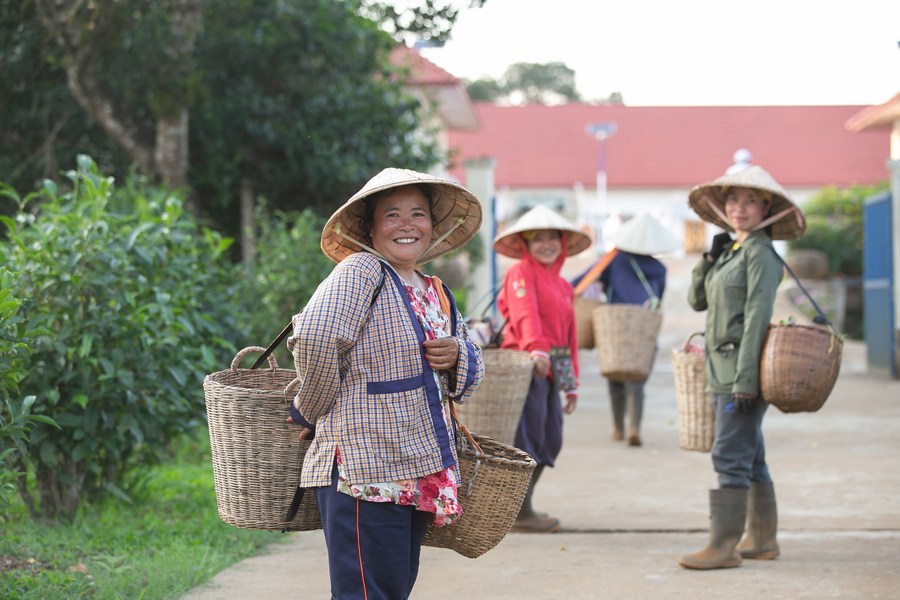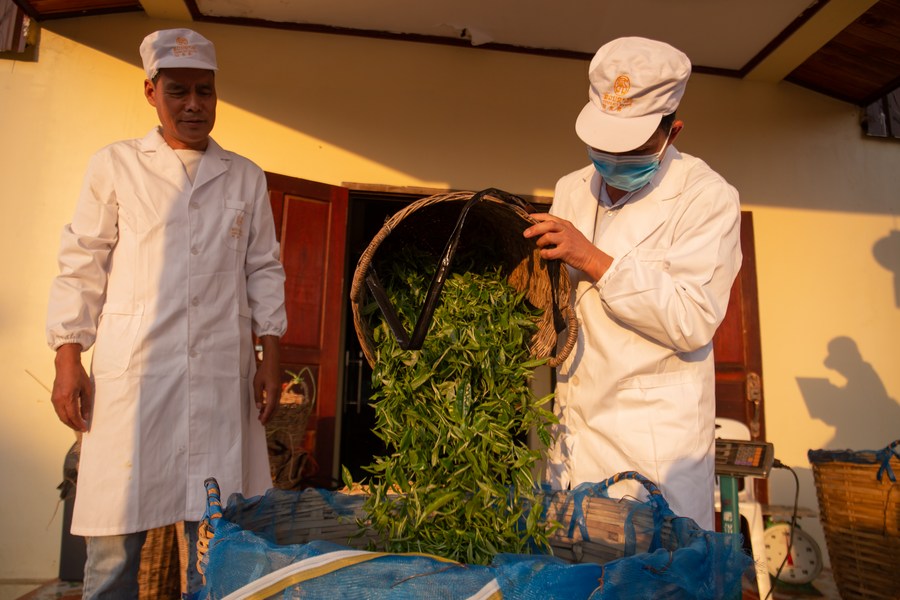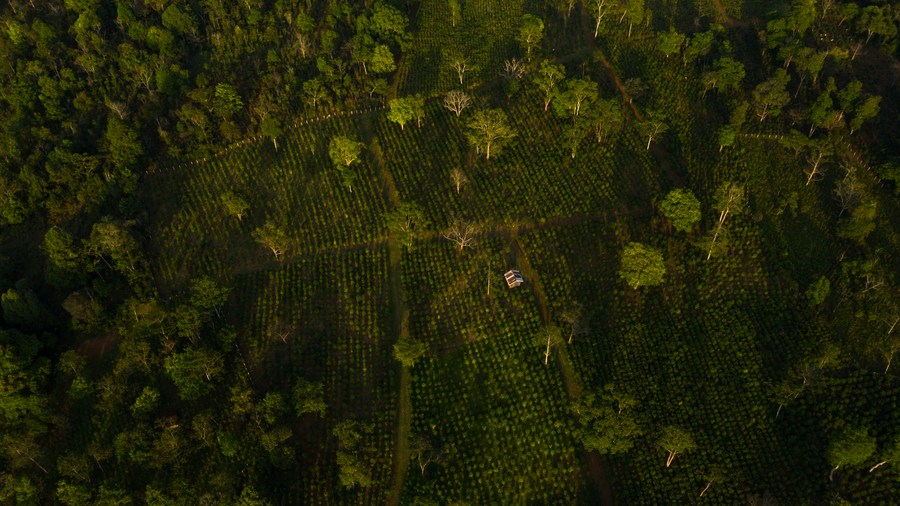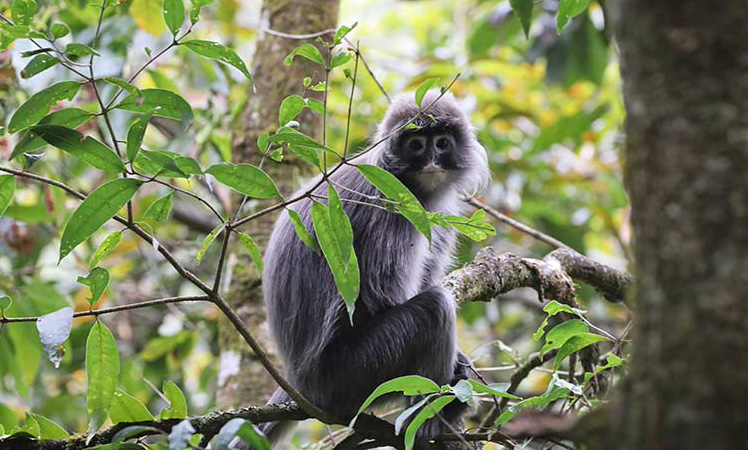Feature: Lao villagers enjoy better lives through Chinese tea

Photo taken on March 25, 2022, shows villagers carrying tea to the factory of 36 Manor in Bolaven Plateau, south Laos. (Photo by Kaikeo Saiyasane/Xinhua)
There are only 800 people in the village that is home to the planation, and before the garden opened more than half of them lived in poverty. After the 36 Manor company came, villagers switched to planting tea and working in the tea plantation. There are very few, four or five, poor households remaining, said the village chief.
VIENTIANE, March 31 (Xinhua) -- A tea garden in Paksong district of Champasak province has been good news for local people, providing them with a better lifestyle than they have ever known.
The plantation, which is owned by Lao Manor, a China-Laos joint venture, is one of the largest tea companies in Laos.
"In recent years, local people have built many new houses by selling tea to us," said Hu Xiaofeng. The factory not only processes 36 Manor tea plantations' tea, but also encourages nearby villagers to plant their own tea, which the factory purchases.
"I can pick as much as 10 kg each day. I make 10,000 kips (about 0.8 U.S. dollars) per kg," said Joy Keoduangta. The 24-year-old has been working in the 36 Manor plantation for four years. She can earn more than 100,000 kips (about eight U.S. dollars) a day from picking tea, about double the amount that is earned in nearby factories.

Photo taken on March 24, 2022, shows villager picking tea leaves at the tea plantation of 36 Manor in Bolaven Plateau, south Laos. (Photo by Kaikeo Saiyasane/Xinhua)
In the Bolaven Plateau of southern Laos, 484 km south of capital Vientiane, many of tea trees in the garden are over 100, even 1,000 years old and were transplanted there by Manor. The tropical climate and loamy volcanic soil combine to give the tea a unique delicate flavor.
"Pesticides and fertilizers have never been used here," Xaiy Buaphaivan told Xinhua. Xaiy is delighted to be working with organic products and has been in charge of the garden for four years.
"I used to work in a coffee garden and earned about 7 to 8 million kips (about 601 to 687 U.S. dollars) a year. Now I earn more than 20 million kips (some 170 U.S. dollars)," he said. "And the tea tastes very good too."

Photo taken on March 25, 2022, shows the 36 Manor's factory collects tea picked by the villagers in Bolaven Plateau, south Laos. (Photo by Kaikeo Saiyasane/Xinhua)
Governor of Paksong district, Phimphone Phannanouvong, told Xinhua that the company has made a great contribution to the local community. The 36 Manor tea from Paksong has been selected by the Lao government as a national gift to share with the world.
"The company not only makes Paksong tea famous, but promotes the advanced planting, care and processing of the tea, creating employment for local people, improving their standard of living and raising the quality and value of Paksong tea," said Phimphone.
Bounyadeth Thongsavan, director of Champasak industry and trade department, said that 36 Manor had created a lot of jobs and driven the increase in regional GDP. "I hope the company to keep improving, planting more, and create more jobs," he said.

Aerial photo taken on March 25, 2022, shows the view of the tea plantation of 36 Manor in Bolaven Plateau, south Laos. (Photo by Kaikeo Saiyasane/Xinhua)
There are only 800 people in the village that is home to the planation, and before the garden opened more than half of them lived in poverty. Khamchan Phetbuachan has been the chief of the village since 1999.
"After the 36 Manor company came, villagers switched to planting tea and working in the tea plantation. Then we're quite well-off now," he said. There are very few, four or five, poor households remaining.
Paksong 36 Manor tea won first prize in the black tea category at the 2021 World Tea Championship in the United States.
Photos
Related Stories
Copyright © 2022 People's Daily Online. All Rights Reserved.










